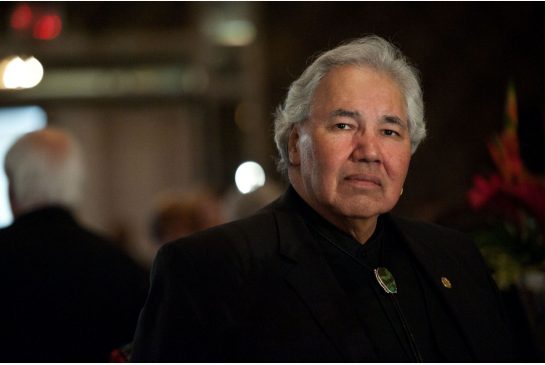Does Ottawa Truly Want Truth and Reconciliation?
By Mayana C. Slobodian
On Sunday, the final event of the Truth and Reconciliation Commission of Canada will kick-off in Ottawa. The truth is, after seven years, many Canadians still don't really know what this commission is. The most common misconception is that it was initiated by the government of Canada. There is a sad irony in this, given that Ottawa has ignored and resisted the work of the TRC from the start. Meanwhile, it has spent the last seven years enacting legislation and policies that, far from rectifying the relationship between Indigenous people and the Canadian government, serve to perpetuate the systemic inequalities that the residential schools worked so hard to entrench. The TRC wasn't set up, as many assume, as a PR move or out of the kindness of our prime minister's heart. Rather, Ottawa was sued into it. In 2007, on behalf of the 80,000 living former students, the Indian Residential School Survivors Society successfully sued the government of Canada and the churches that operated its schools. It took six years, and remains the largest class-action lawsuit in Canadian history. It was the former students themselves who insisted on a truth commission, and it runs on money taken out of that overall settlement. The relationship between the federal government and the TRC has always been tense. By 2009, all three original commissioners had stepped down citing, among other concerns, objections to meddling from Ottawa. One of the first acts of the next commissioners was to move the headquarters from Ottawa to Winnipeg. The TRC has also taken the federal government to court twice over access to archival documents, and its 2010 interim report criticized the government’s “unacceptable reluctance to co-operate.” Ottawa's combative approach conflicts with the image most of us have of a truth commission. This mostly comes from South Africa: a vision of black and white people embracing each other in the spirit of forgiveness and the world-historical glow of the end of apartheid. Leaving aside the dubious accuracy of this, in South Africa, the TRC followed the end of a racist system of dispossession and oppression. In Canada, Indigenous people had to sue the government to get a truth commission, and they're paying for it themselves. So much for reconciliation. The TRC has spent much of its time recording heart-rending testimony, mostly from Indigenous people: Survivors and family members. There were periodic “expressions of reconciliation” statements from provincial and municipal governments, as well as church representatives. But Ottawa has been conspicuously absent. Its formal presence at TRC events was limited to an information table, which offered Canada flag pins and copies of the government's widely criticized official apology. These were printed in cursive font on aged-looking paper and rolled up — yes, like treaties. Given its treaty and constitutional obligations, and the far-reaching Indian Act, the federal government is the primary source of Aboriginal policy. While municipal and provincial governments can make small changes and broad gestures, the big-deal stuff like Aboriginal title, band governance, and resource development, falls to Ottawa. Our government's coercive tactics towards First Nations resisting oil and gas development are a far cry from the TRC goal of establishing “new relationships embedded in mutual recognition and respect.” Meanwhile, the Conservatives’ tough-on-crime policies have disproportionately affected Aboriginals, compounding the systemic inequalities that grew out of the forced disintegration of Indigenous communities. Aboriginal women, for example, represent 4 per cent of all female Canadians, but one-third of the female prison population, and that number is rising. This is both a legacy of residential schools and a continuation of the logic that sees Indigenous people as a problem, as in the way. If the federal government was sincere in its apology for building an education system that aimed at the dismantling of cultural, political and economic foundations of Indigenous lives, then it must take seriously its unique power to redress the profound damage done — and change its ways. The TRC final report can be a good starting point, but its recommendations will be non-binding. That means parliament is free to do what they did with the final report of the monumentally labour-intensive 1996 Royal Commission on Aboriginal Peoples: ignore it. That would be a shame, and a mistake. At a TRC event in Alberta last year, former prime minister Joe Clark gave an ominous warning. He entreated Ottawa not to turn its back on the commission and the people — indigenous and non-indigenous — who showed up to participate. “Resentment,” he said, “can be combustible.” As TRC Commissioner Murray Sinclair put it, “They say the truth will set you free. Well, first it's going to piss you off.” Mayana C. Slobodian is a doctoral student at the University of Toronto's Centre for Criminology & Sociolegal Studies. A version of this article previously appeared on Vice Canada.
|
.
Any original material on these pages is copyright © BishopAccountability.org 2004. Reproduce freely with attribution.
